New mom Harley Quinn gets spotlight in Batman: White Knight spin-off from romance novelist Katana Collins
From Sean Murphy, Katana Collins, and Matteo Scalera
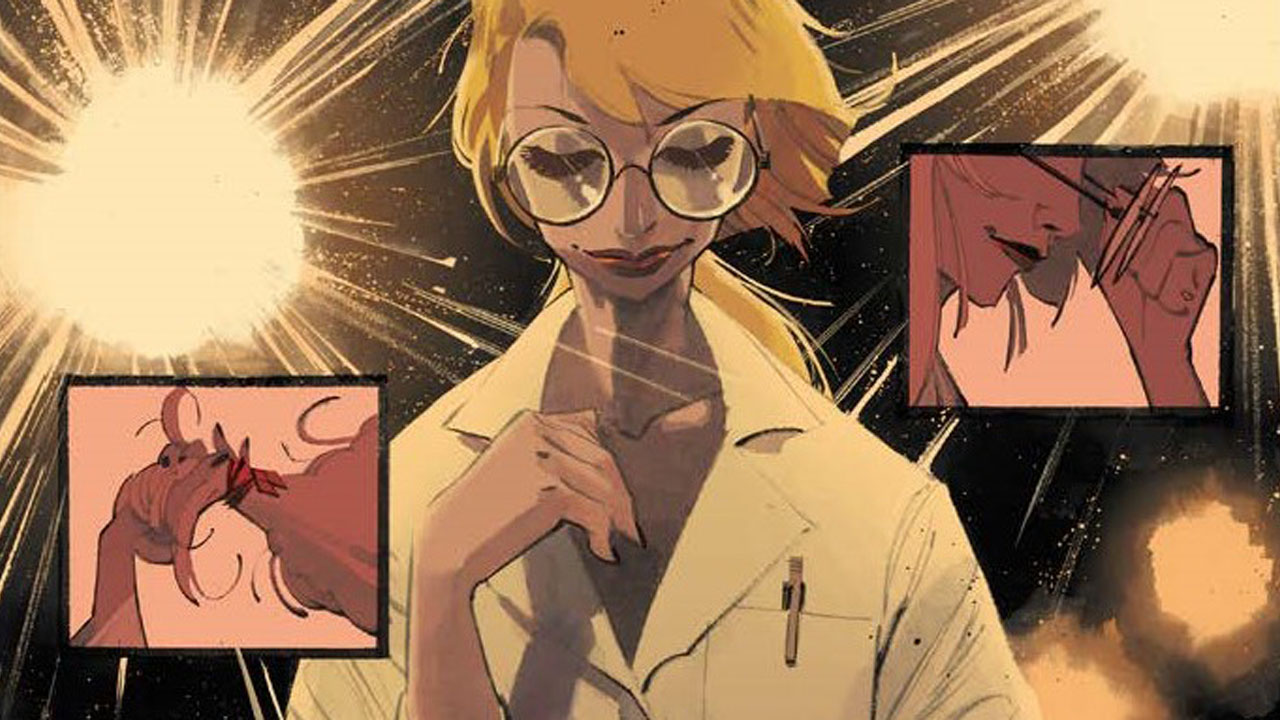
In October, the 'White Knight' version of Harley Quinn will receive her own story in Batman: White Knight presents Harley Quinn, a limited series co-plotted by creator Sean Murphy and written by prose novelist Katana Collins - who happens to be married to Murphy.
Although Murphy created the first two White Knight limited series himself — labeled by fans as the 'Murphyverse' — on Harley Quinn, he's stepping back to let Collins write and artist Matteo Scalera draw.
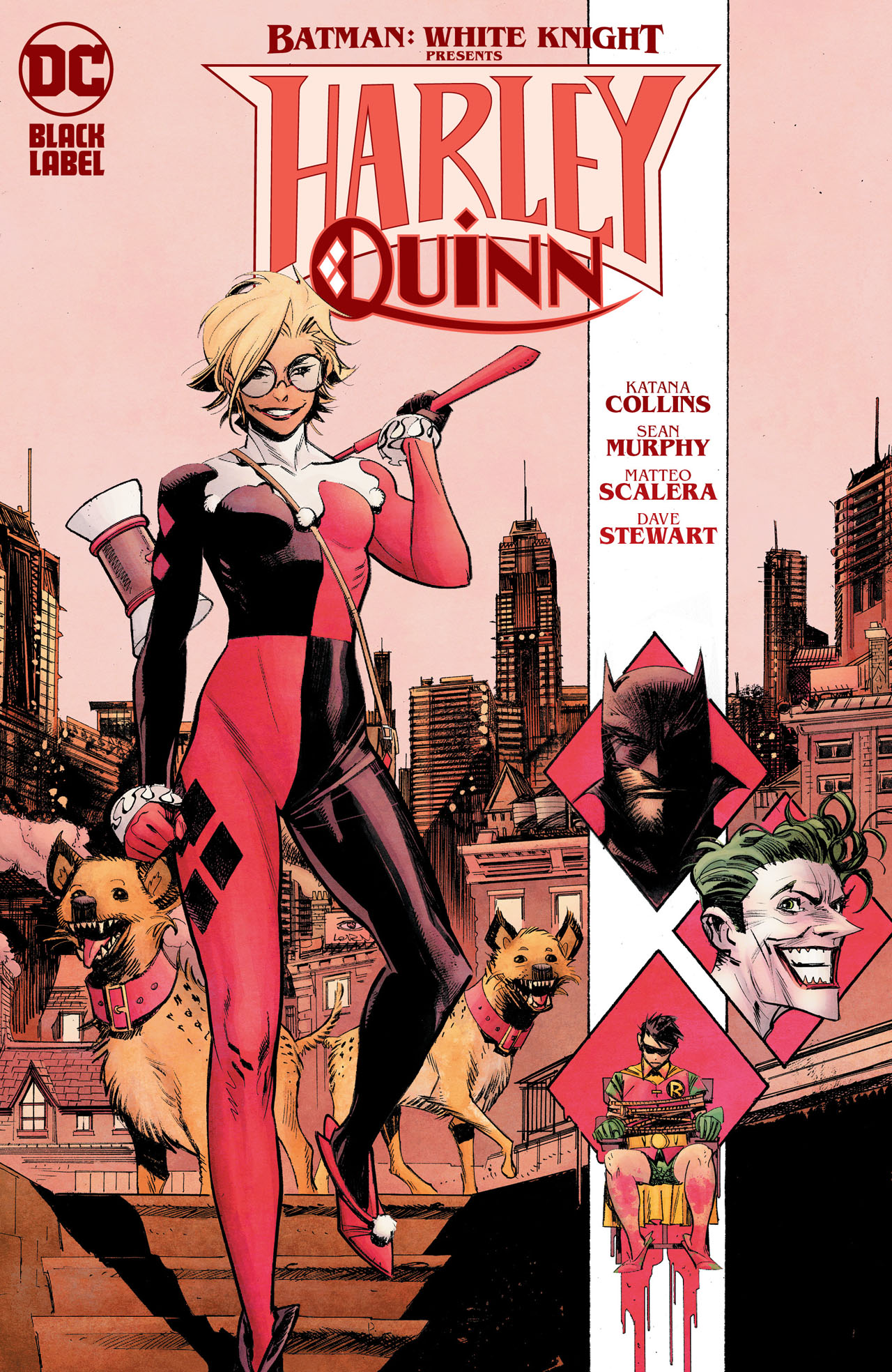
In the alternate world of Batman: White Knight, Harley Quinn has taken a whole different turn — with a set of twins, the death of the Joker, and the incarceration of Harley's confidant Batman.
Already facing the challenges of being a new mother, Harley will be enlisted by the Gotham police department to help with a murder mystery that reveals a slew of new villains in Batman's absence, including a nemesis for Harley herself.
Newsarama talked to Collins to find out more about working with Murphy and Scalera, and stepping into DC's comic books from romance novels.
Newsarama: Katana, what drew you to this project?
Katana Collins: Well, to be honest, I really love Harley Quinn as a character. Sean showed me the Batman animated series when we were in college, and I remember watching the episode 'Mad Love' and just kind of being captivated by her.
Comic deals, prizes and latest news
Get the best comic news, insights, opinions, analysis and more!
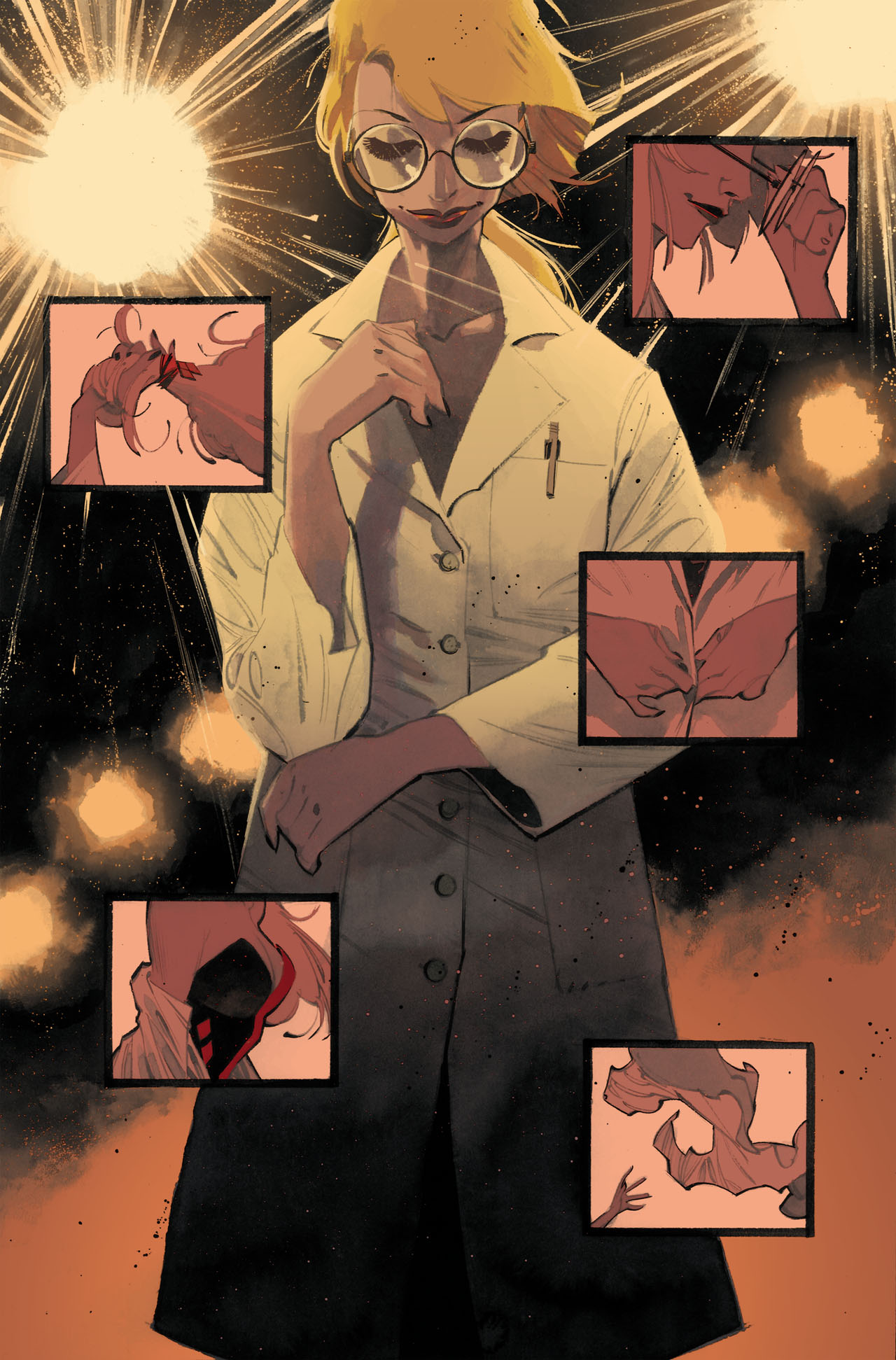
And then fast forward a lot of years, and Sean and I are married, and I got to see what he took Harley and made her into. I was there kind of behind the scenes while he was writing the original White Knight and Curse of the White Knight.
I think the nature of being a couple and being creative minds, we bounced ideas off each other all the time. I was a sounding board for him, and he's always a sounding board for me with my books too.
And in those times that we would talk about the books he was writing and the books I was writing, I started to think about how I could see Harley progressing in her growth and development as a character.
Nrama: She's so well-known to people from the cartoons, and also among comic book readers. She takes a different route in the White Knight universe. What kind of story will we see about her in this mini-series?
Collins: In Sean's world, in the Curse of the White Knight, she's just given birth to twins — who are Jack Napier's/Joker's twins.
Joker/Jack is dead. And Batman is in prison.
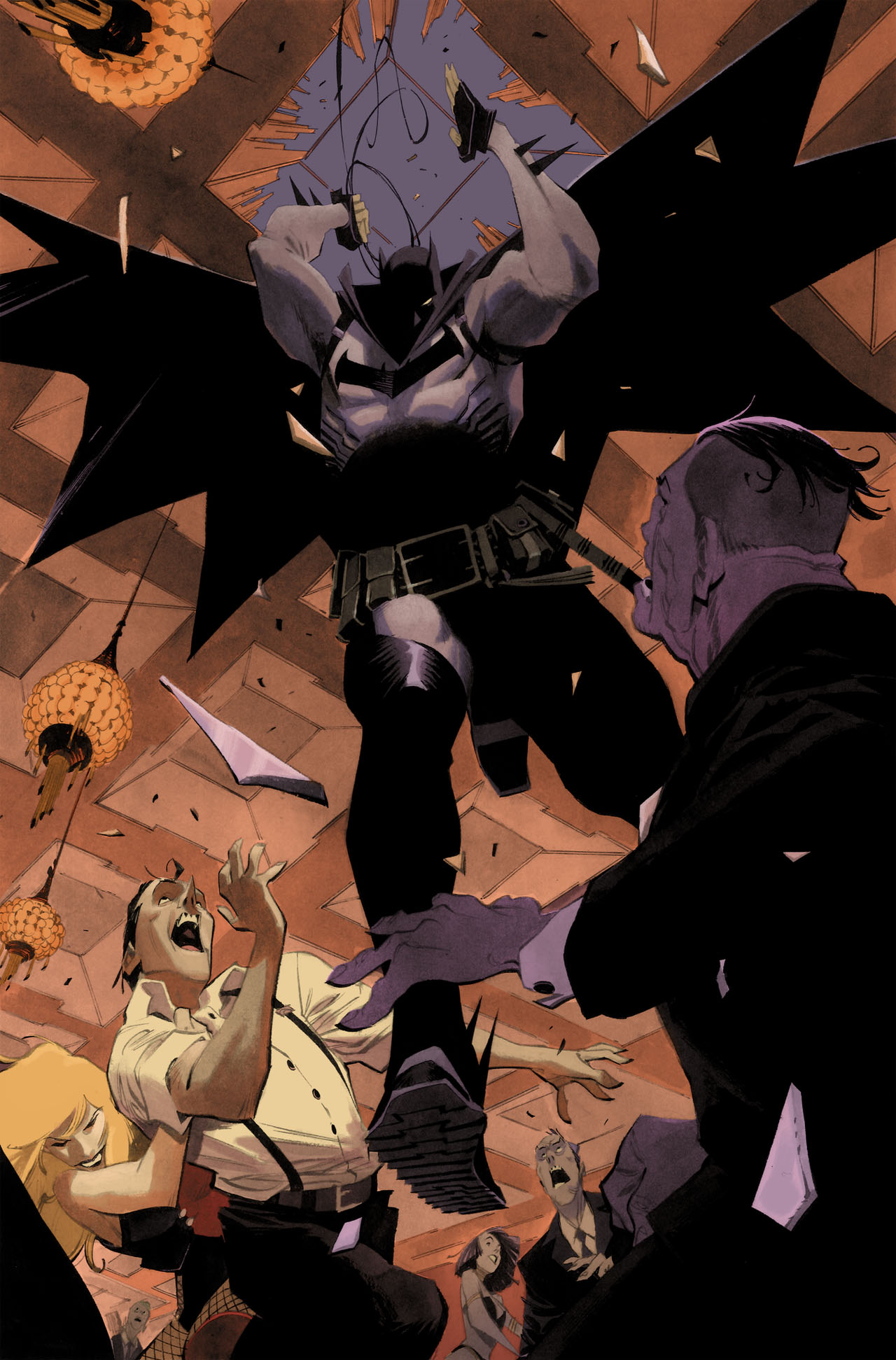
So Batman: White Knight presents Harley Quinn picks up a couple years after the end of Curse. She's now a single mom to Joker's twins, and she's struggling with the very real things that I think a lot of moms probably struggle with — with depression, trying to figure out how to navigate being a mother and being herself and how those things combine.
And on top of that, she's Harley Quinn. And she's now living in a world where there's no Jack or Joker, and there's often no Batman in her life anymore — not really.
So in this world, when a new serial killer turns up in Gotham, a gruesome crime scene shows a possible link to Joker. So the GPO and the FBI ask for Harley's help to solve this new string of murders.
I think the most exciting thing about it is that we're going to introduce two new DC villains within the series.
They center around that Golden Age Hollywood theme.
Nrama: Someone who's an antagonist for Harley?
Collins: Yes. It's a new villain on the scene called the Producer, who's creating a whole new slew of villains.
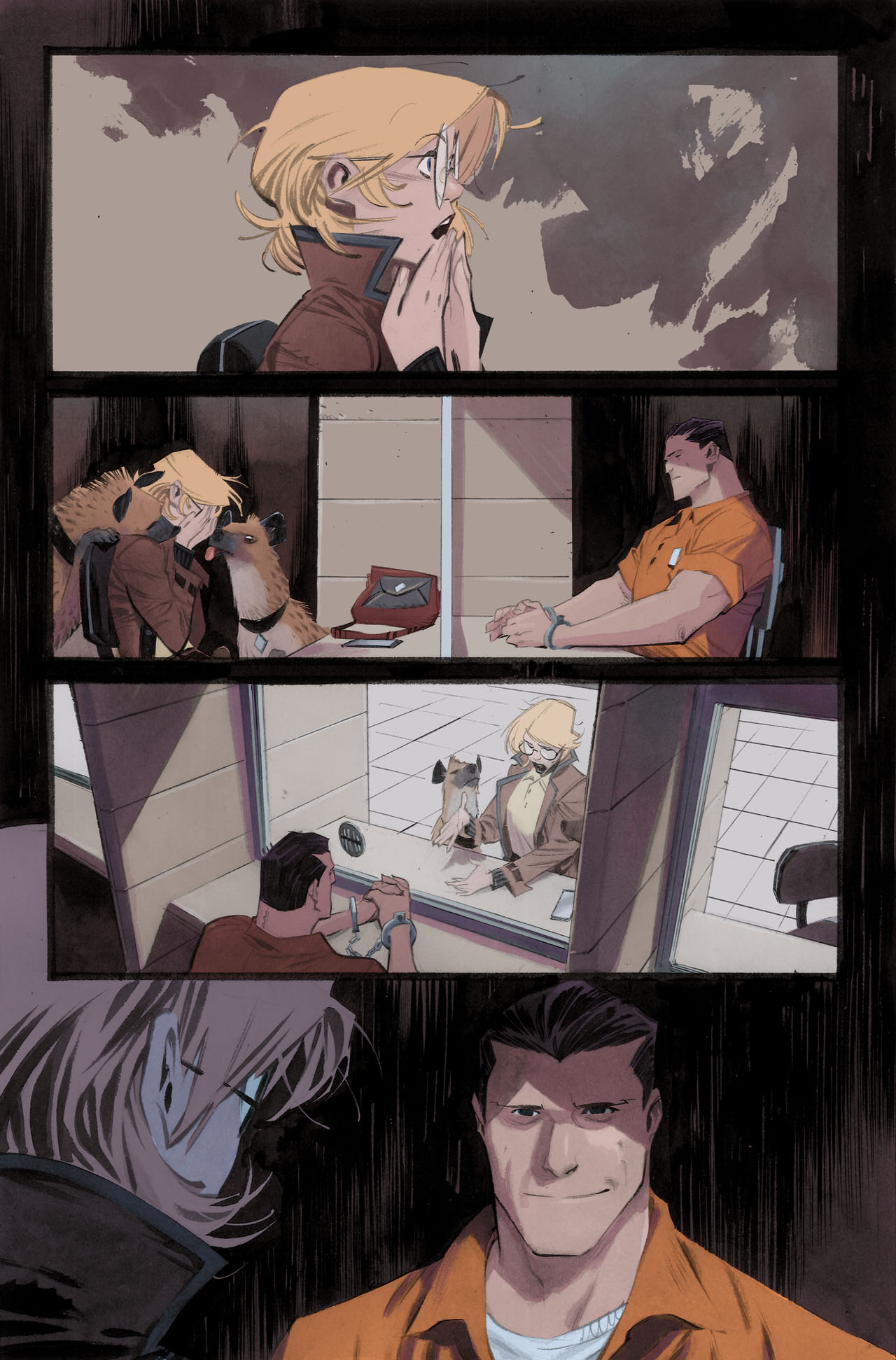
At the end of Curse, Azrael kills a lot of the existing villains in Gotham. So in this book, there's a new villain who's creating a whole new set of Gotham villains, including the main villain of the series, who's called Starlet. And she, like, paints herself black and white and looks like an old-timey movie star.
Nrama: How do you think this story explores a new aspect of Harley that readers might be interested in seeing?
Collins: The tricky thing is that there have been so many iterations of Harley, but to my knowledge, I don't think there's another story out there that explores Harley as a new mother, where she's a bit older and a more mature version of herself.
I think the best any writer can hope for is to find — what's the phrase — the "uniquely familiar."
So there are so many things about this character that are still the Harley Quinn we all know and love. But it's unique enough because she's older, more mature, and the love of her life is gone.
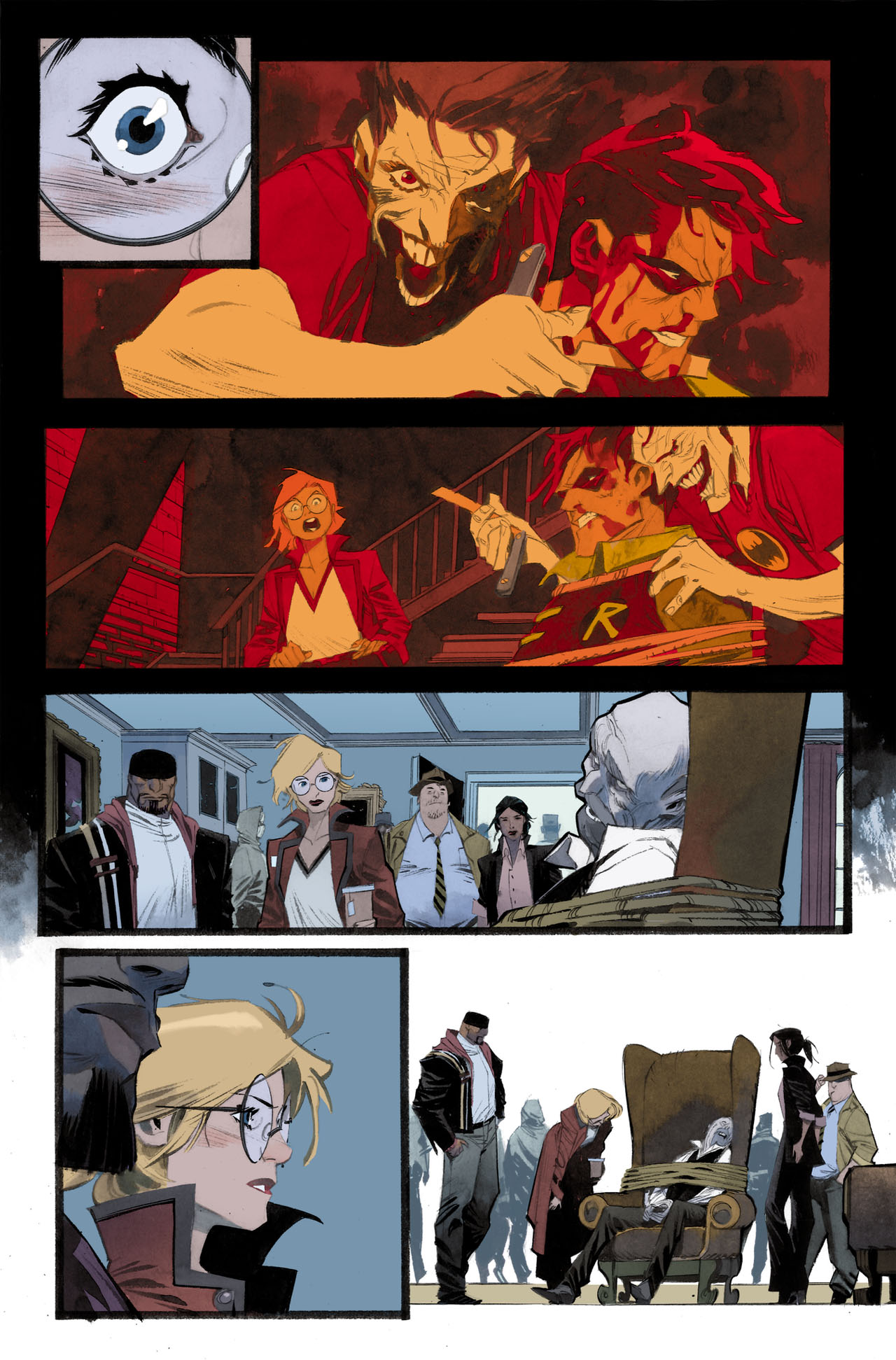
And then of course, Batman is in prison.
In this world, Batman is a confidant for her. In Curse, which Sean wrote and drew, Harley and Batman teamed up quite a bit and became this partnership that I don't think anyone would have expected.
Nrama: Were you able to have the artist in mind as you wrote this?
Collins: Matteo Scalera is doing the art and I did know that going in. We've had Matteo on board for awhile. Matteo is just so talented.
There's something you don't get writing prose, obviously. You don't get to watch your story come to life before your eyes in beautiful images. And when you have an artist of Matteo's caliber, sometimes the best thing you can do as a writer is just sit back and allow that artist to take the reins with some of the scenes.
Nrama: Are you working on any other comic book projects? Or do you want to tell folks what else you've got coming up?
Collins: I'm not working on any other comics right now. We're still working on wrapping up this one. I did work on a comic with Sean awhile ago called Cafe Racer. Other than that, I write romance novels, and I've got a pretty extensive backlist of romance novels — especially romantic comedies that came out this summer.
They're the perfect beach read, if anyone's going to the beach with COVID right now.
Nrama: We need to call them backyard reads.
Collins: There you go. A little back deck reading.
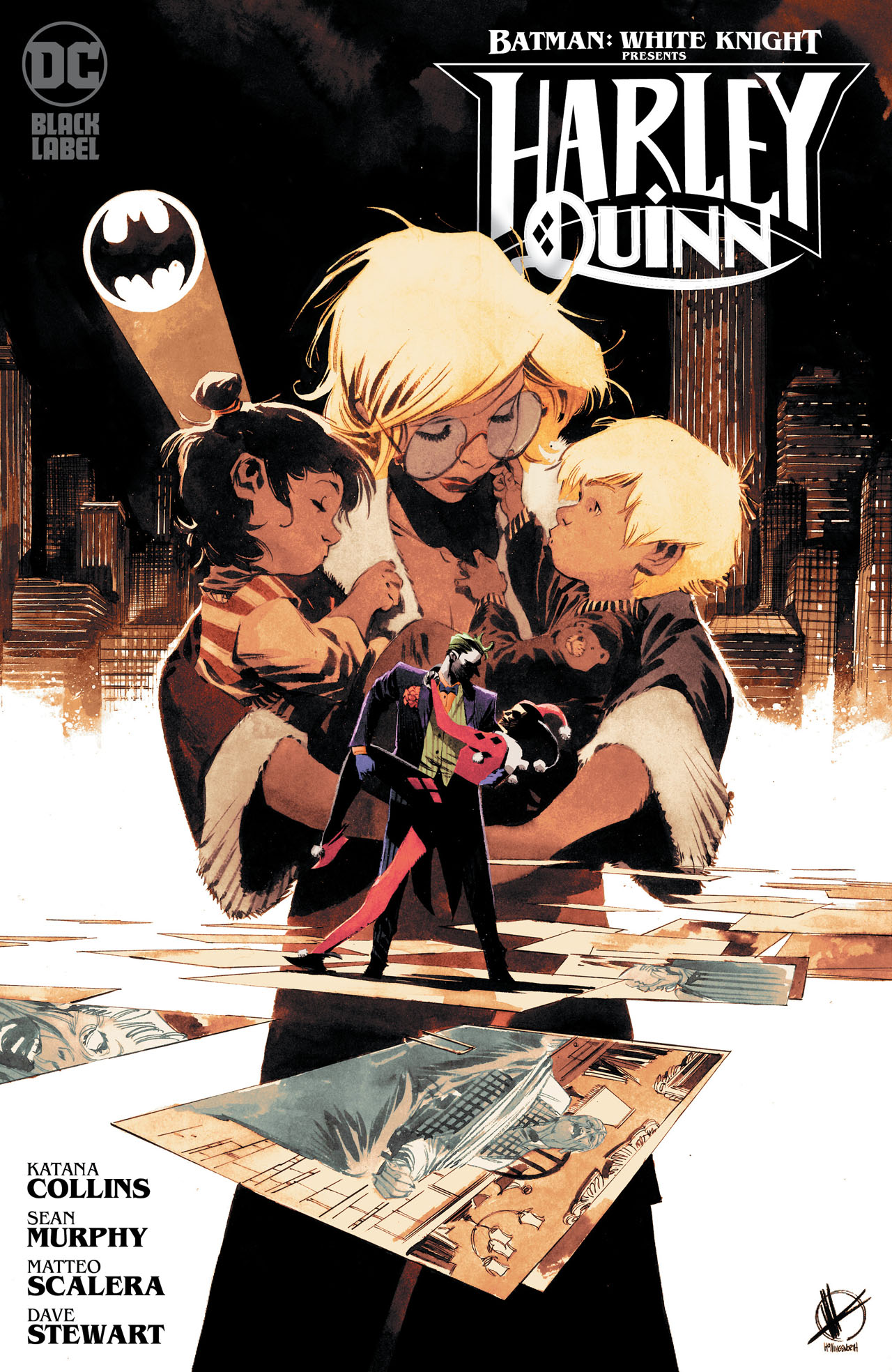
Nrama: How does your work on prose inform your work on this? Or are you familiar enough with comic books, because of Sean's work, to have that type of plotting in your mind?
Collins: It was definitely different. There was a bit of a learning curve. But I think I've been exposed to comics enough that I understood mostly, but it took me by surprise as I was writing, just the amount of succinctness you need when writing comics.
In prose, when you write a novel, you can be as flowery as you want. You can take two pages to describe the way the moonlight streams in through the window and the character's innermost thoughts about that.
But there's just not enough space for that in comics.
Nrama: Which takes us back to trusting the artist.
Collins: Exactly. When you have an artist you trust and you know that they will convey the work that you don't need to say, you don't need to talk about how beautiful the moonlight is streaming through the window. You've got Matteo showing everyone how beautiful that is.
Vaneta has been a freelance writer for Newsarama for over 17 years, covering Marvel and DC, and everything in between. She also works in marketing.


